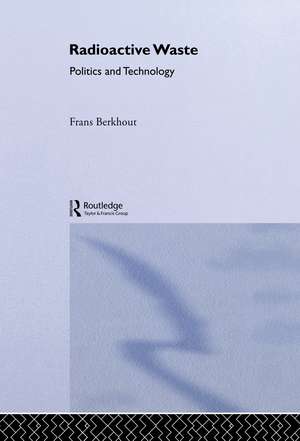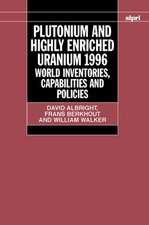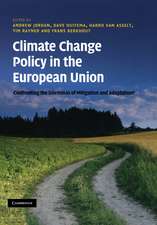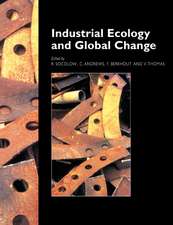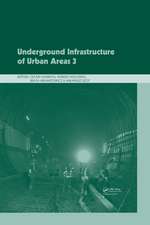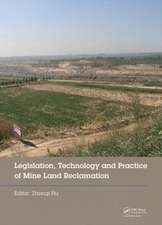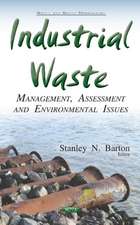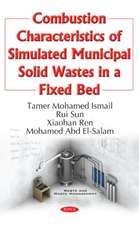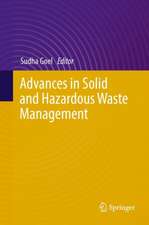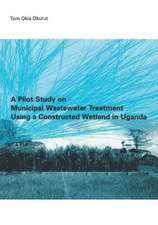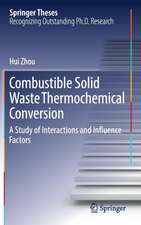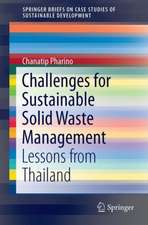Radioactive Waste: Politics and Technology: The Natural Environment: Problems and Management
Autor Frans Berkhouten Limba Engleză Hardback – 14 feb 1991
| Toate formatele și edițiile | Preț | Express |
|---|---|---|
| Paperback (1) | 241.90 lei 43-57 zile | |
| Taylor & Francis – 14 feb 1991 | 241.90 lei 43-57 zile | |
| Hardback (1) | 332.44 lei 43-57 zile | |
| Taylor & Francis – 14 feb 1991 | 332.44 lei 43-57 zile |
Preț: 332.44 lei
Preț vechi: 440.98 lei
-25% Nou
Puncte Express: 499
Preț estimativ în valută:
63.63€ • 69.14$ • 53.49£
63.63€ • 69.14$ • 53.49£
Carte tipărită la comandă
Livrare economică 21 aprilie-05 mai
Preluare comenzi: 021 569.72.76
Specificații
ISBN-13: 9780415054928
ISBN-10: 0415054923
Pagini: 268
Dimensiuni: 156 x 234 x 20 mm
Greutate: 0.59 kg
Ediția:1
Editura: Taylor & Francis
Colecția Routledge
Seria The Natural Environment: Problems and Management
Locul publicării:Oxford, United Kingdom
ISBN-10: 0415054923
Pagini: 268
Dimensiuni: 156 x 234 x 20 mm
Greutate: 0.59 kg
Ediția:1
Editura: Taylor & Francis
Colecția Routledge
Seria The Natural Environment: Problems and Management
Locul publicării:Oxford, United Kingdom
Recenzii
`...recommended...of interest to a range of `experts', political scientists, physicists and regulators, as well as the informed general reader.' - Environmental Values
`This timely book is a welcome addition to the burgeoning literature on technological hazards...this book provides a wealth of localized material on three European countries that should be of enormous use to those of us working in the environmental field.' - Environment and Planning A
`This timely book is a welcome addition to the burgeoning literature on technological hazards...this book provides a wealth of localized material on three European countries that should be of enormous use to those of us working in the environmental field.' - Environment and Planning A
Cuprins
1 Managing radioactivity 1.1 Radioactive wastes and public concern 1.2 The need for the study 1.3 Methods 1.4 The nuclear-fuel cycle and radioactive wastes 1.5 The objectives of radioactive-waste management and radiation protection 1.6 The structure of the book 2 Time and the boundary of control 2.1 Introduction2.2 Time and control 2.3 Hypotheticality and performance 2.4 Modelling the performance of disposal systems 2.5 Regulating risks and its social consequences 2.6 A synthesis: setting boundaries of control 2.7 Conclusion 3 The Federal Republic of Germany 3.1 Introduction 3.2 Legal and institutional framework 3.3 The historical setting of Entsorgung politics 3.4 An historical analysis of Entsorgung policy 3.5 Conclusion 4 Sweden 4.1 Introduction 4.2 The legal and institutional framework for radwaste management 4.3 The historical roots of nuclear power in Sweden 4.4 The making of Swedish radwaste policy 4.5 Conclusion 5 The United Kingdom 5.1 Introduction 5.2 The control of radioactive wastes 5.3 The logic of reprocessing 5.4 An historical assessment of radwaste management policy and practice 5.5 Conclusion 6 Industry, regulation and the state: historical themes 6.1 Introduction 6.2 The relationship between industrial and environmental regulatory goals in the nuclear-fuel cycle 6.3 Radwaste management: the evolution of policy 6.4 Conclusion 7 The construction of consent 7.1 Introduction 7.2 Legitimation and radwaste policies 7.3 The problem of legitimation 7.4 Regulation and the construction of consent 7.5 Conclusion 8 Conclusions
Notă biografică
Frans Berkhout is Research Fellow at the Science Policy Research Unit of the University of Sussex.
Descriere
This analysis of nuclear strategy, the politics of nuclear power and the shifting emphasis of government regulation redefines the issue of radwaste management and sets it at the centre of the current debate about the environment.
